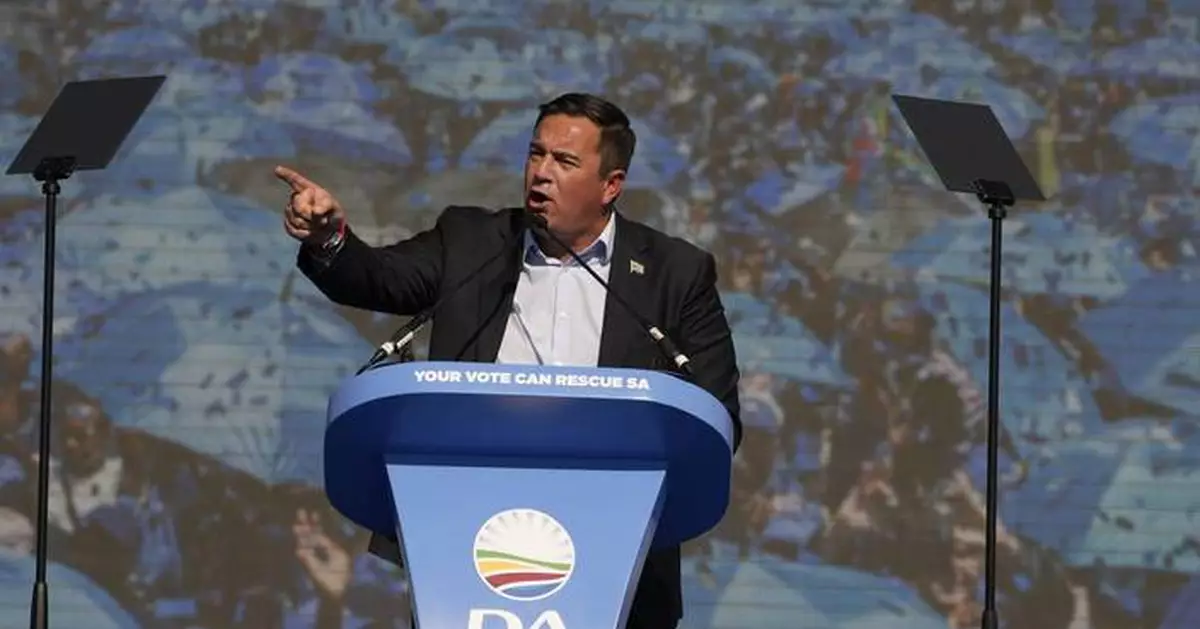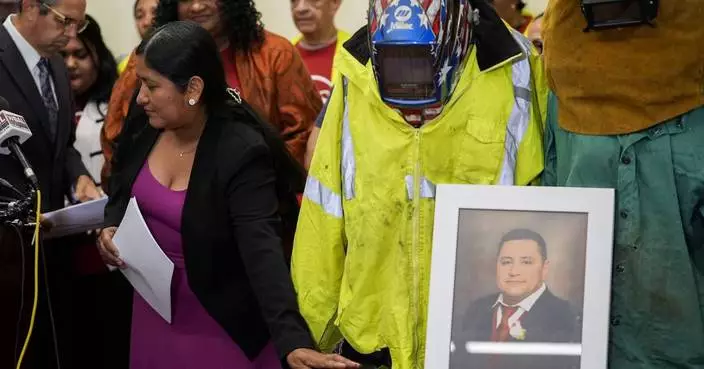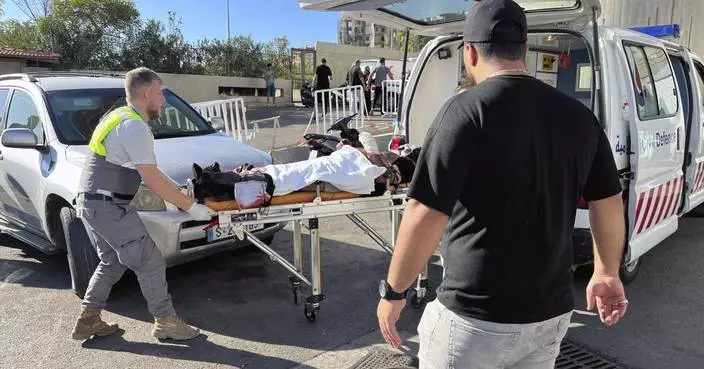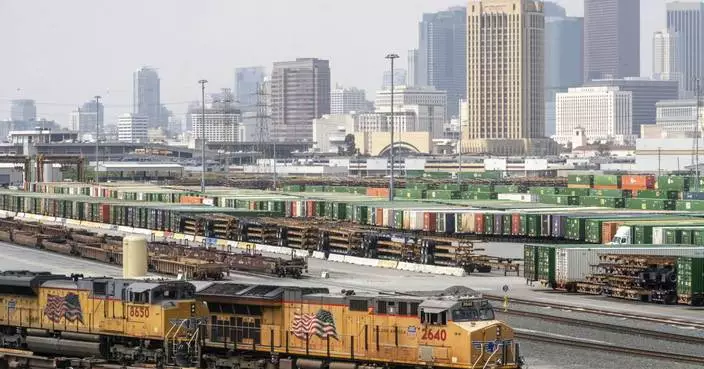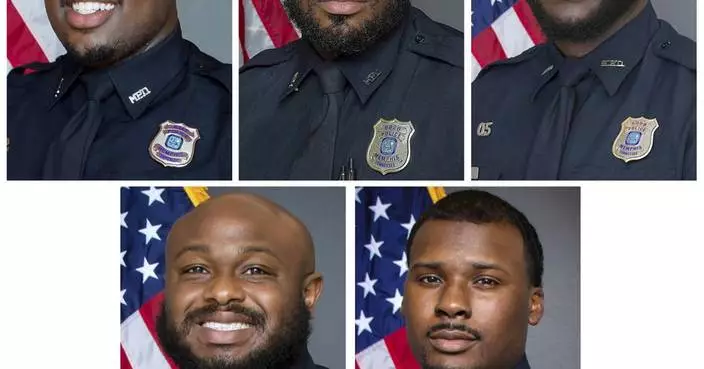CAPE TOWN, South Africa (AP) — Conflict is likely among partners in South Africa's new coalition government but that won't be “catastrophic” for its hopes of turning around the country, the leader of the second biggest political party said Thursday.
John Steenhuisen's Democratic Alliance joined a coalition government led by the long-ruling African National Congress against all expectations after May's national election, making staunch foes from either side of the South African political spectrum partners in government.
Analysts predicted it would be a difficult working relationship — and Steenhuisen called it “a marriage of inconvenience” for Africa's most advanced economy, which is burdened by problems of poverty, inequality, unemployment and failing state-run businesses.
Steenhuisen said that there would likely be many moments of disagreement between his center-right DA and the left-leaning ANC over the next five years of the parliamentary term to end South Africa's “deep crisis,” and that should be accepted.
“Conflict over policy ... is not necessarily an existential threat to the government," Steenhuisen said in a lunchtime speech to a largely elderly audience at a plush sports club in Cape Town. “There will be conflict. There will be differences in policy.”
The ANC and the DA came together along with eight other smaller parties to form what's been called a government of national unity after weeks of painstaking negotiations following the May 29 election. The historic agreement was brokered after the long-dominant ANC lost its parliamentary majority for the first time since the end of the apartheid system of racial segregation in 1994, forcing it to find coalition partners to stay in government. It put South Africa in uncharted political waters.
The coalition government was finally formed at the end of June and faces the challenge of reigning in South Africa's desperate unemployment rate of 32%, the highest in the world outside of a war zone. South Africa's economy has hardly grown over the last decade, and Steenhuisen, the former main opposition leader who is now the minister of agriculture, said his party had a singular focus on those issues in government.
“Economic growth and job creation. Growth and jobs. Me and my party are not going to let anything get in the way of that,” he said.
The conflict Steenhuisen spoke of between the DA and ANC could be seen on Friday if President Cyril Ramaphosa, the ANC leader, signs an education bill into law that the DA is strongly opposed to, as Ramaphosa has said he will.
Steenhuisen said his party would take the government it is part of to court over the law if Ramaphosa signs it and accused the ANC of “riding roughshod” over its coalition partners.
The DA is also deeply opposed to a national health law that was introduced before the election that will effectively make the government the sole procurer of healthcare. Critics, including the DA, say it will wipe out the private healthcare business instead of improving public healthcare. The DA is also committed to challenging that in court, Steenhuisen said, another issue where the two main parties that hold the fate of the coalition are at loggerheads.
But Steenhuisen said there was also “a long list” of policies the ANC and DA have agreed on in the 2 1/2 months since the coalition government was formed, mostly with regards to reforming an economy that is meant to be a leader in Africa and for the wider developing world but had just 1.9% GDP growth in 2022 and 0.6% last year.
Steenhuisen said Ramaphosa and the ANC had “no better ally than the Democratic Alliance" when it came to economic reforms that would create jobs and fight poverty.
AP Africa news: https://apnews.com/hub/africa
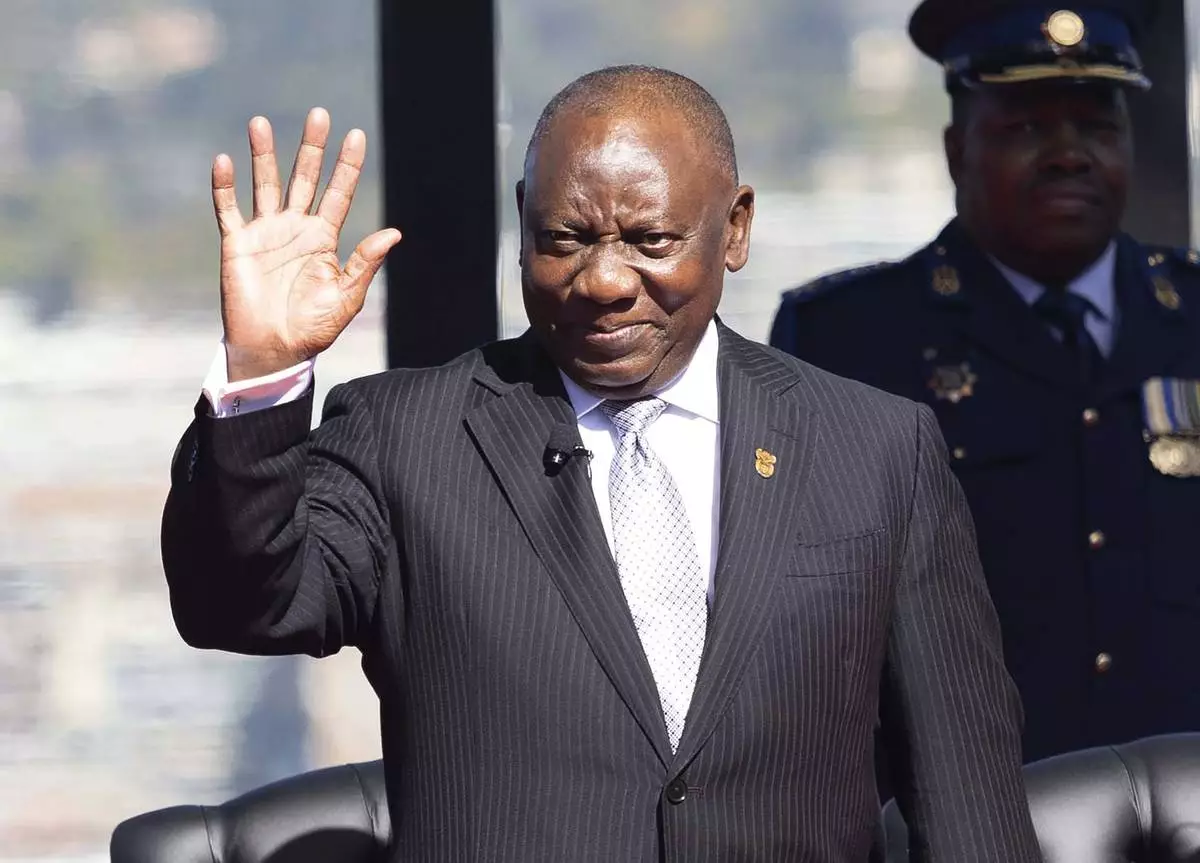
FILE - Cyril Ramaphosa waves as he arrives ahead of his inauguration as President, at the Union Buildings in Tshwane, South Africa, June 19, 2024. (Kim Ludbrook/Pool Photo via AP, File)
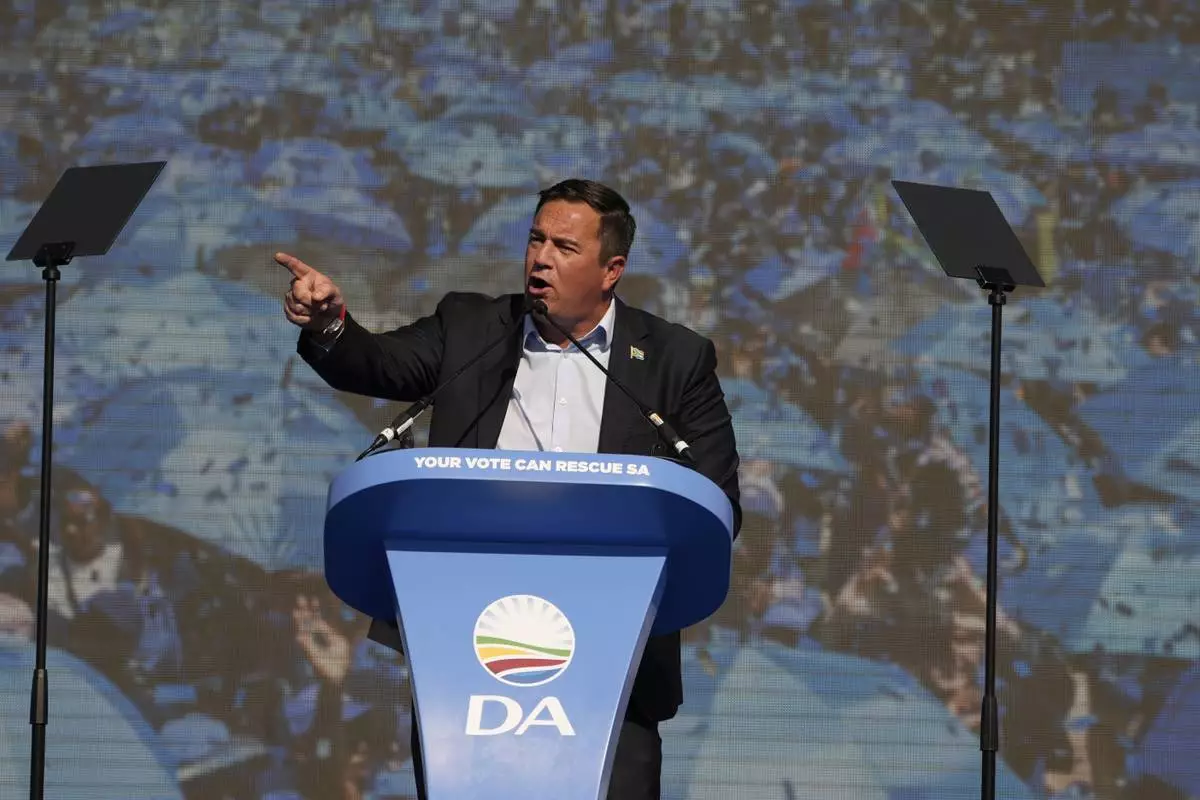
FILE - Main opposition Democratic Alliance (DA) party leader, John Steenhuisen, delivers his speech at a final election rally in Benoni, South Africa, May 26, 2024. (AP Photo/Themba Hadebe, File)
JEFFERSON CITY, Mo. (AP) — The FBI and the U.S. Postal Inspection Service on Tuesday were investigating the origin of suspicious packages that have been sent to or received by elections officials in more than a dozen states, but there were no immediate reports of injuries or that any of the packages contained hazardous material.
The latest packages were sent to elections officials in Georgia, Kentucky, Massachusetts, Missouri, New York and Rhode Island. Mississippi authorities reported a package was delivered there on Monday, and the Connecticut Secretary of State's office on Tuesday also said the FBI alerted them of a suspicious package that was intercepted.
The FBI is collecting the letters, some of which contained “an unknown substance,” spokesperson Kristen Setera of the agency's Boston office said in a statement.
“We are also working with our partners to determine how many letters were sent, the individual or individuals responsible for the letters, and the motive behind the letters,” she said. “As this is an ongoing matter we will not be commenting further on the investigation, but the public can be assured safety is our top priority.”
It’s the second time in the past year that suspicious packages were mailed to election officials in multiple state offices.
The latest scare comes as early voting has begun in several states less than two months ahead of the high-stakes elections for president, Senate, Congress and key statehouse offices around the nation, causing disruption in what is already a tense voting season. Local election directors are beefing up their security to keep their workers and polling places safe while also ensuring that ballots and voting procedures won’t be tampered with.
The National Association of Secretaries of State condemned what it described as a “disturbing trend” of threats to election workers leading up to Nov. 5, as well as the second apparent assassination attempt on former President Donald Trump.
“This must stop, period,” the group said. "Our democracy has no place for political violence, threats or intimidation of any kind.”
On Tuesday, the FBI notified the Massachusetts Secretary of the Commonwealth’s office that postal service investigators had identified what they described as a suspicious envelope that had been delivered to a building housing state offices. The package was intercepted and isolated, according to state officials. No employees from the secretary of the commonwealth’s office had contact with the envelope, which is now in the hands of the FBI.
Packages also were sent to secretaries of state and state election offices in Iowa, Kansas, Nebraska, Oklahoma, Tennessee and Wyoming this week. The packages forced evacuations in Iowa, Oklahoma and Wyoming. Hazmat crews in several states quickly determined the material was harmless.
The Mississippi Secretary of State’s Elections Division said it received a package similar to those sent to other states. It said its office had been on “high alert” for a potential package and that the state Department of Homeland Security was testing the one received. The division said it has notified county election officials to be on the lookout.
Oklahoma officials said the material sent to the election office there contained flour. Wyoming officials have not yet said if the material sent there was hazardous.
“We have specific protocols in place for situations such as this,” Iowa Secretary of State Paul Pate said in a statement after the evacuation of the six-story Lucas State Office Building in Des Moines. “We immediately reported the incident per our protocols.”
A state office building in Topeka, Kansas, was evacuated due to suspicious mail sent to both the secretary of state and attorney general, Kansas Highway Patrol spokesperson April M. McCollum said in a statement.
Topeka Fire Department crews found several pieces of mail with an unknown substance on them, though a field test found no hazardous materials, spokesperson Rosie Nichols said. Several employees in both offices had been exposed to it and had their health monitored, she said.
In Oklahoma, the State Election Board received a suspicious envelope in the mail containing a multi-page document and a white, powdery substance, agency spokesperson Misha Mohr said in an email to The Associated Press. The Oklahoma Highway Patrol, which oversees security for the Capitol, secured the envelope. Testing determined the substance was flour, Mohr said.
State workers in an office building next to the Wyoming Capitol in Cheyenne were sent home for the day pending testing of a white substance mailed to the secretary of state’s office.
Suspicious letters were sent to election offices and government buildings in at least six states last November, including the same building in Kansas that received suspicious mail Monday. While some of the letters contained fentanyl, even the suspicious mail that was not toxic delayed the counting of ballots in some local elections.
One of the targeted offices was in Fulton County, Georgia, the largest voting jurisdiction in one of the nation’s most important swing states. Four county election offices in Washington state had to be evacuated as election workers were processing ballots cast, delaying vote-counting.
The letters caused election workers around the country to stock up the overdose reversal medication naloxone.
Election offices across the United States have taken steps to increase the security of their buildings and boost protections for workers amid an onslaught of harassment and threats following the 2020 election and the false claims that it was rigged.
LeBlanc reported from Boston. Christina Almeida Cassidy in Atlanta; Anthony Izaguirre in Albany, New York; Susan Haigh in Norwich, Connecticut; Jim Salter in O’Fallon, Missouri; Isabella Volmert in Lansing, Michigan; Mead Gruver in Cheyenne, Wyoming; Jonathan Mattise in Nashville, Tennessee; Sean Murphy in Oklahoma City and John Hanna in Topeka, Kansas, contributed to this report.
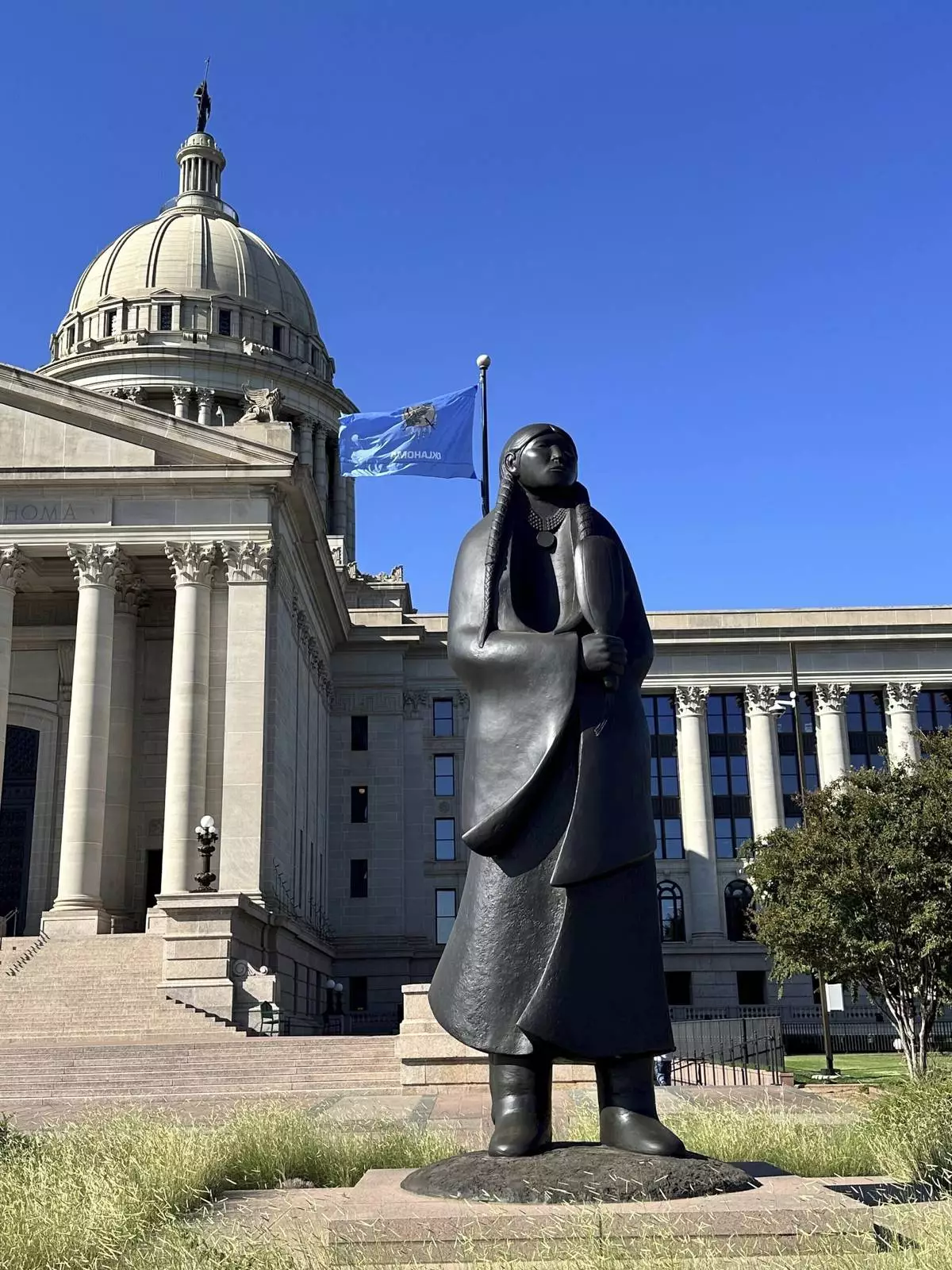
The Oklahoma State Election Board Office inside the state Capitol in Oklahoma City, was one of at least five states in the U.S. which election officials received suspicious packages on Monday, Sept. 16, 2024. (AP Photo/Sean Murphy)
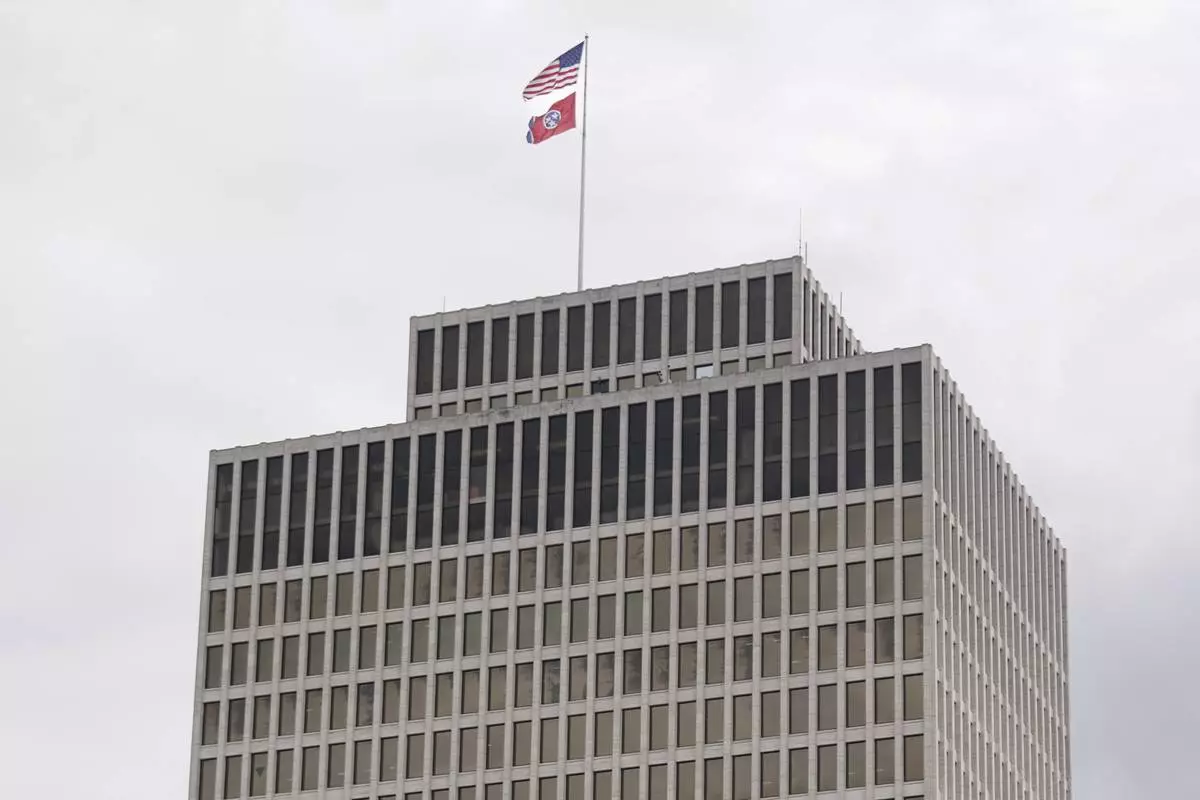
FILE - William R. Snodgrass Tennessee Tower stands June 22, 2023, in Nashville, Tenn. (AP Photo/George Walker IV, File)
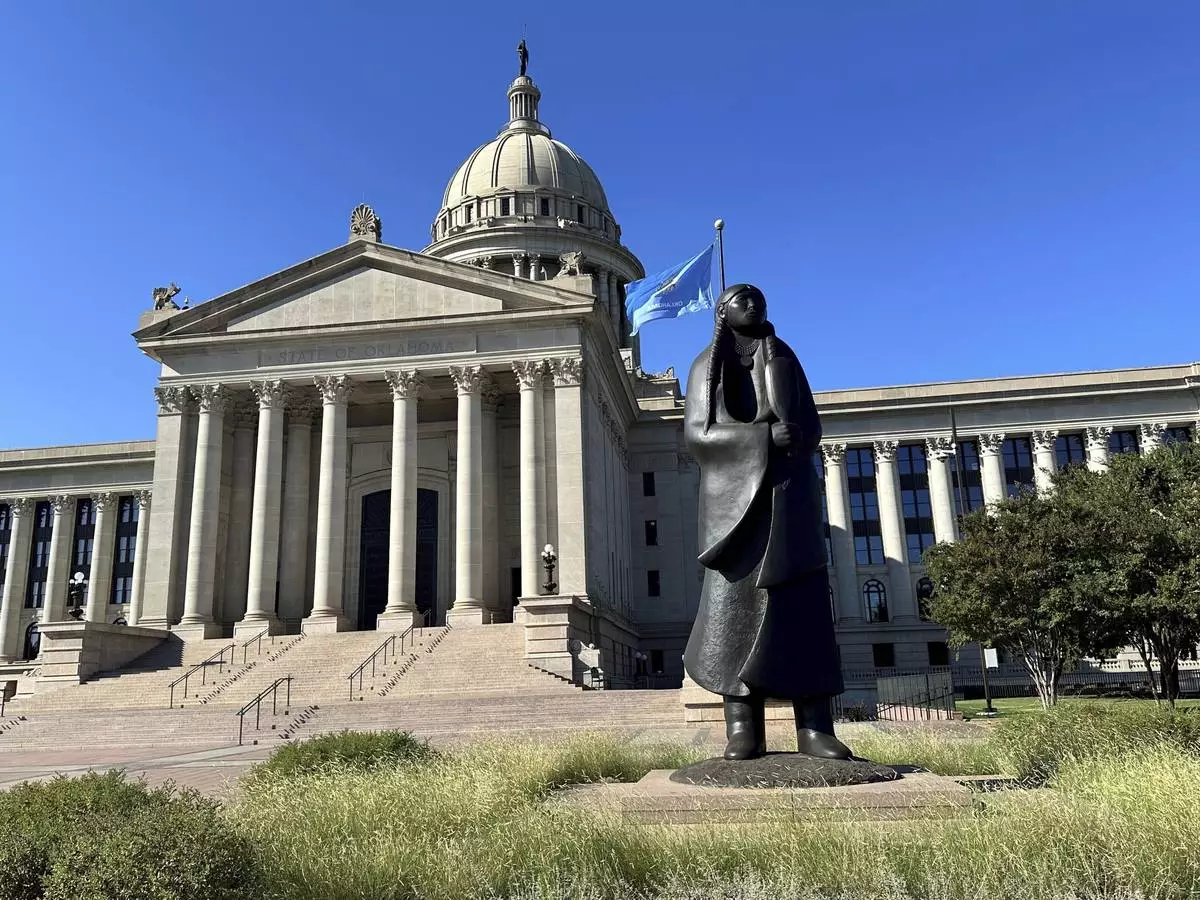
The Oklahoma State Election Board Office inside the state Capitol in Oklahoma City, was one of at least five states in the U.S. which election officials received suspicious packages on Monday, Sept. 16, 2024. (AP Photo/Sean Murphy)
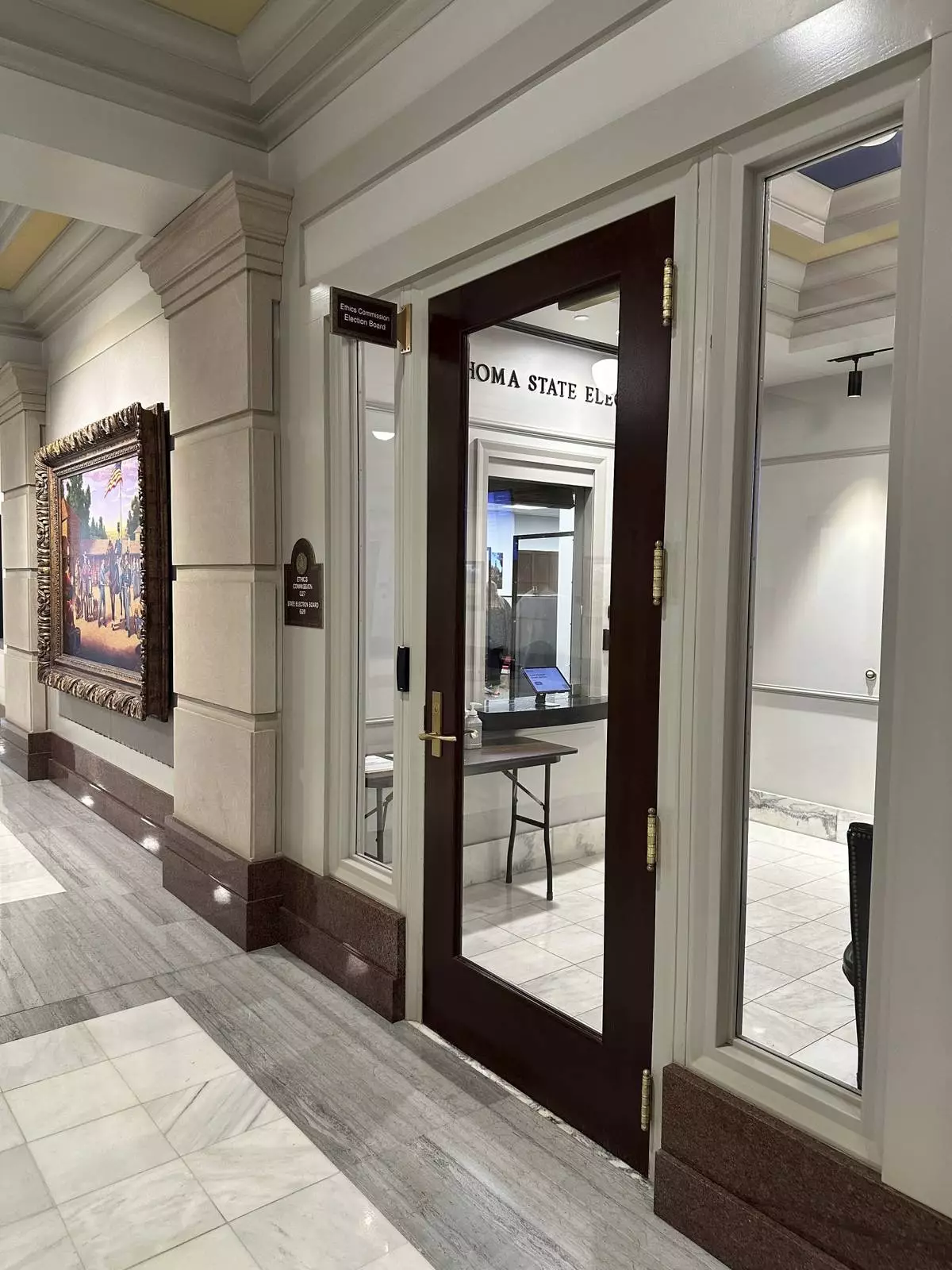
The Oklahoma State Election Board Office inside the state Capitol in Oklahoma City, was one of at least five states in the U.S. which election officials received suspicious packages on Monday, Sept. 16, 2024. (AP Photo/Sean Murphy)
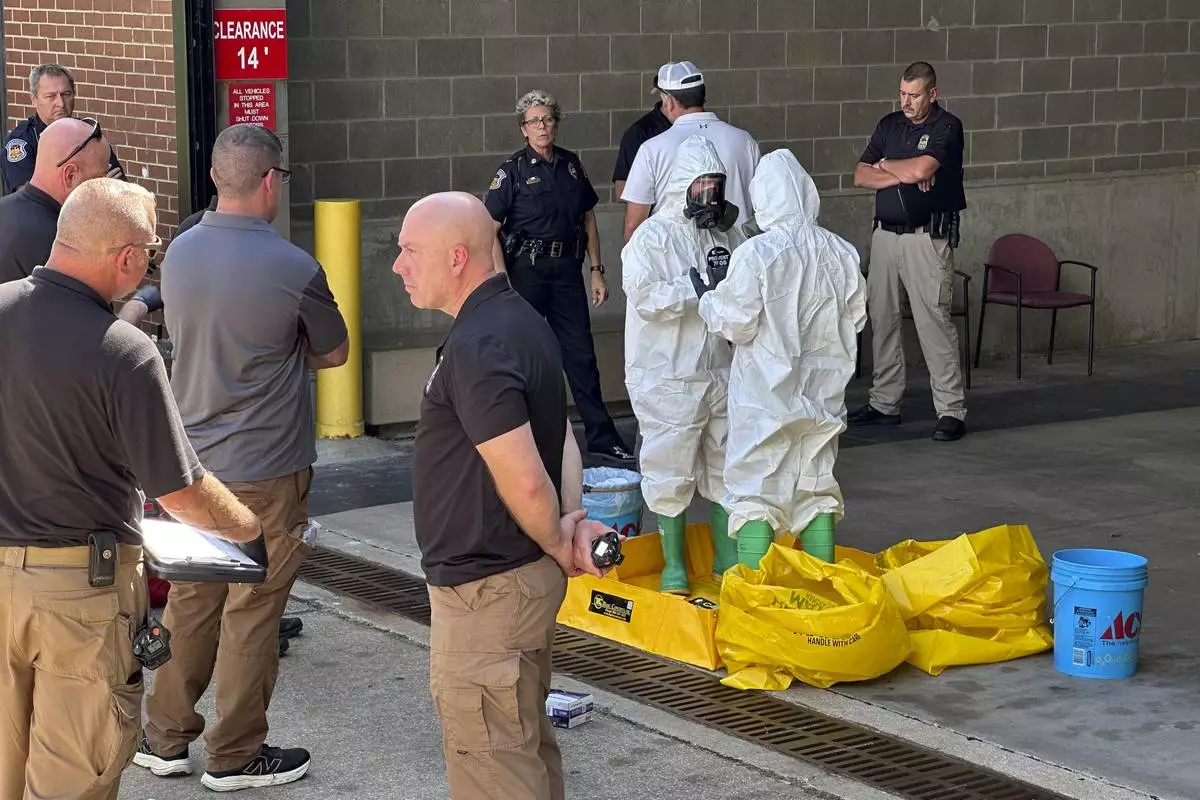
A hazmat crew from the National Guard's Civilian Support Team investigates after a suspicious package was delivered to election officials at the Missouri Secretary of State's Jefferson City, Mo., office on Tuesday Sept. 17, 2024. (AP Photo/Summer Ballentine)




